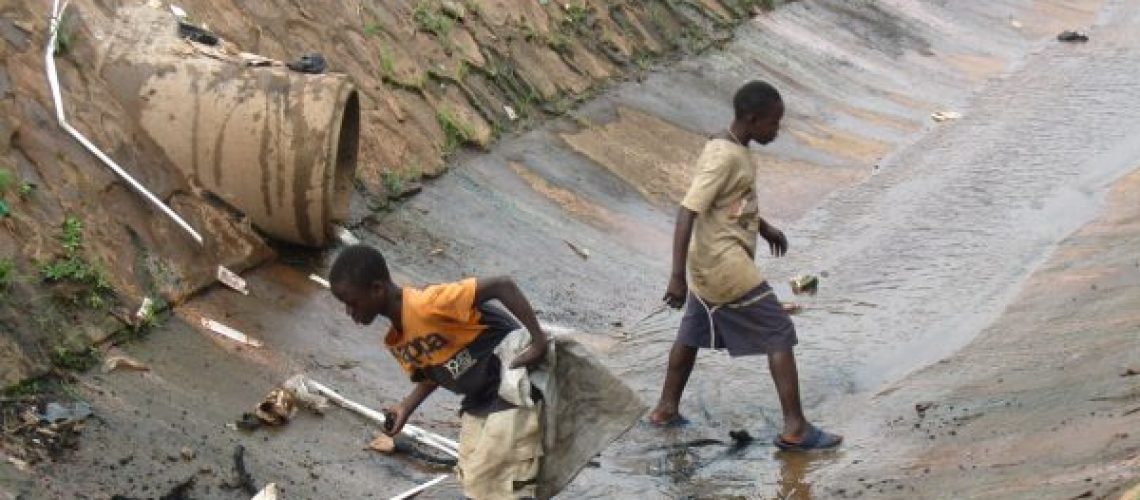Street children nowadays are attracting attention all over the entire world – specifically those in developing countries like India, Kenya, Bangladesh, Uganda, Tanzania and many others. Out of all these countries, Uganda has the highest demographic group of children that are living in general poverty.
According to 2018 statistics, Ugandan cities have a combined total of around 15,000 street children who do not have adequate access to support, healthcare, or education. The majority of these children are situated in four major towns – Mbale, Iganga, Jinja and Kampala. However, throughout the entire country, the number of street children could be much higher than the above estimate.
In Kampala, in particular, more than 2,600 children aged 7-17 years are living on streets, of which 1,410 are estimated to be working on streets, based on the 2019 statistics. Out of the 1.2 million people in Uganda, a whopping 61% of the population live below the poverty line, and 42.7% of all children in Uganda are orphans.
The main reasons why Ugandan children end up on streets are conflicts, HIV/AIDS, poverty, and abusive households. They live with the constant fear that if caught, they will be taken by the police. Unfortunately, the number of children on the streets is increasing rapidly every day.
Like other countries, many of these street children face threats and abuse from the police, from peers as well as government officials. Currently, this fear of the police and authorities is higher than that of the risk of contracting COVID-19. Despite the virus being highly dangerous for these children, the physical and emotional assault from authority figures at night is a real and visible threat. There have also been reports of sexual abuse and rape.
Youths and adults may also abuse and beat younger children who come into “their space” or introduce them to drugs and get them involved in petty crimes. This is why it is imperative to support and assist these children before it is too late to save them.
Abducting and trading younger children from different parts of the country and other parts of the world to beg has turned into a profitable industry. There have initiatives aimed at combating this horrendous trade, including the government banning donations to street children, with perpetrators given a relatively hefty fine of $11 or six months imprisonment. Also, a new law to support this has been very effective, which works to prohibit lease agreements for apartments that are intended to facilitate the trade, sex work, and exploitation of children. In addition, the parents of children who are begging and living on the streets will also be penalised.
That being said, these laws are currently restricted to the capital city Kampala. Hopefully, they would be implemented in other towns and soon in the entire country, as well as supported and followed by other countries.
This may make it difficult for the children in the first few months, as many may lose their means of income. But hopefully, it will cause them to find their way back home or to a rehabilitation centre, in order to become better citizens in the long run.
STEPS TO BE TAKEN BY THE UGANDAN GOVERNMENT
- The Ugandan government should sanction enough funds to empower the street children and their families.
- Appropriate monitoring should be in place, particularly on the night roundups, to avoid beating and violence against children.
- There needs to be sufficient support from the local communities.
- Donations should be encouraged to the organisations that are housing and rehabilitating children on the streets.
- The NGO’s that are working towards good causes for the children must be promoted.
- Appropriate steps to train police officials must be taken before handling juvenile cases and ensuring their schooling and reunification.
- The government must support effective and proven methods to end child trafficking.
STEPS TO BE TAKEN BY COMMUNITIES
- Not treating the street children as thieves or a potential danger.
- Also promoting NGOs and supporting the cause.
- Ending abuse against their own children.
- Addressing the root causes of violence and abuse on these children.
By following these steps and supporting and empowering the organisations that are working to end child trafficking, we can certainly trigger a positive change in the lives of these children.
To know more about street children in Kenya and Tanzania or to hear some of the survivors’ stories, check out our previous blog Survivors of child trafficking on our website.
References:
https://www.theguardian.com/global-development/2014/jul/21/uganda-street-children-homeless-police
https://www.dw.com/en/why-children-still-beg-on-the-streets-of-kampala/a-42921250
https://www.aljazeera.com/news/2019/05/kampala-slum-dwellers-deplore-ban-street-children-donations-190527103554147.html
https://www.bbc.com/news/world-africa-48384673
Image source:
https://nilepost.co.ug/2017/12/18/5810/
Written by: Chandini Balla


